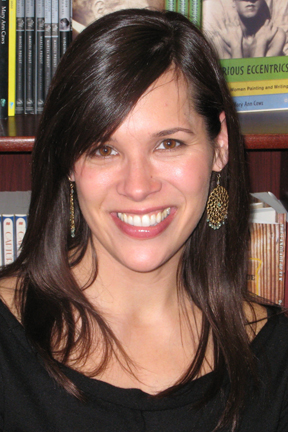To submit a question for the next featured agent, e-mail agentadvice@pw.org or write to Editor, Poets & Writers Magazine, 90 Broad Street, Suite 2100, New York, NY 10004. Questions accepted for publication may be edited for clarity and length.
 Areas of interest: Literary and commercial fiction, narrative nonfiction, journalism, memoir, prescriptive nonfiction
Areas of interest: Literary and commercial fiction, narrative nonfiction, journalism, memoir, prescriptive nonfiction
Representative clients: Moustafa Bayoumi, Mary Ann Caws, Katharine Davis, James Magruder, Janna McMahan, Benjamin Percy, Chris Rose, and Laura van den Berg
Looking for: Query letter and sample chapters from fiction writers; query letter and complete proposal from nonfiction writers
Preferred contact: E-mail kf@cbltd.com
Agency contact:
Curtis Brown, Ltd.
10 Astor Place
New York, NY 10003
(212) 473-5400
www.curtisbrown.com
With the help of my agent, I published my first novel with a respectable press two years ago. I’m writing my second novel now, but I also have some short stories that I’d like to submit to literary magazines. Should I bother my agent with these submissions or just send them myself?
Sarah from Boston
It really depends on the agent. The best thing to do is simply ask your agent how she would like to handle it. If the work in question is a story that has been excerpted or adapted from a forthcoming book under contract with a publisher, you definitely want to consult your agent, since it would be considered a first serial submission. With my own clients, I determine who will handle a story submission on a case-by-case basis. I mainly submit short fiction only to bigger magazines such as the Atlantic, the Paris Review, and Esquire. If the piece isn’t appropriate for these publications, or if none of the big magazines bite, then the author will usually submit to other places. It’s a matter of making the best use of your agent’s time, and that’s up to you and your agent to determine. Be aware that an agent’s willingness to submit short fiction depends on a variety of factors: the extent of her magazine contacts, whether she has the time or support staff to work on such submissions, and, if applicable, what’s stated in your agency-author agreement.
I’m always reading about how writers should choose agents based on their client lists: If an agent represents an author you like or who writes like you do, it might be a good fit. But I also hear agents say they’re looking for something new, something unlike anything they’ve ever read before. Which is it?
John from New York City
Both are true. Aside from the obvious exceptions, you shouldn’t worry too much about how an agent will compare your book with what he already represents. You should instead focus mainly on whether the agent represents books in the same general category as yours, and if you like his taste. An exception to this is if your book is clearly in direct competition with something the agent already represents. For instance, it’s not a good idea to send your proposal for “The Basket Weaving Bible” to the agent who represents the author of The Definitive Guide to Basket Weaving. Of course, with fiction it can be harder to tell whether something is too similar, so you can always mention the similar books in your query and make a point of stating how yours is different. (I don’t suggest mentioning how it’s going to be better!) Here’s an example of what a writer interested in querying me should take away from knowing that I represent Benjamin Percy: His forthcoming novel, The Wilding, deals with the commercialization of the American frontier and the idea that there is an animalism that lurks within us all. If your novel does deal with similar themes, great—feel free to mention that in a query. I always appreciate when someone has taken the time to familiarize herself with my list and my interests. But you shouldn’t assume that I’m actively looking or not looking for fiction set in the American West or about people’s more animalistic tendencies. Instead, if you like my writers’ work and you think I’d be a good match for your book, then query away. And if I do think it’s too similar to something I represent, I’ll let you know. Either way I’ll appreciate your having done your research.









